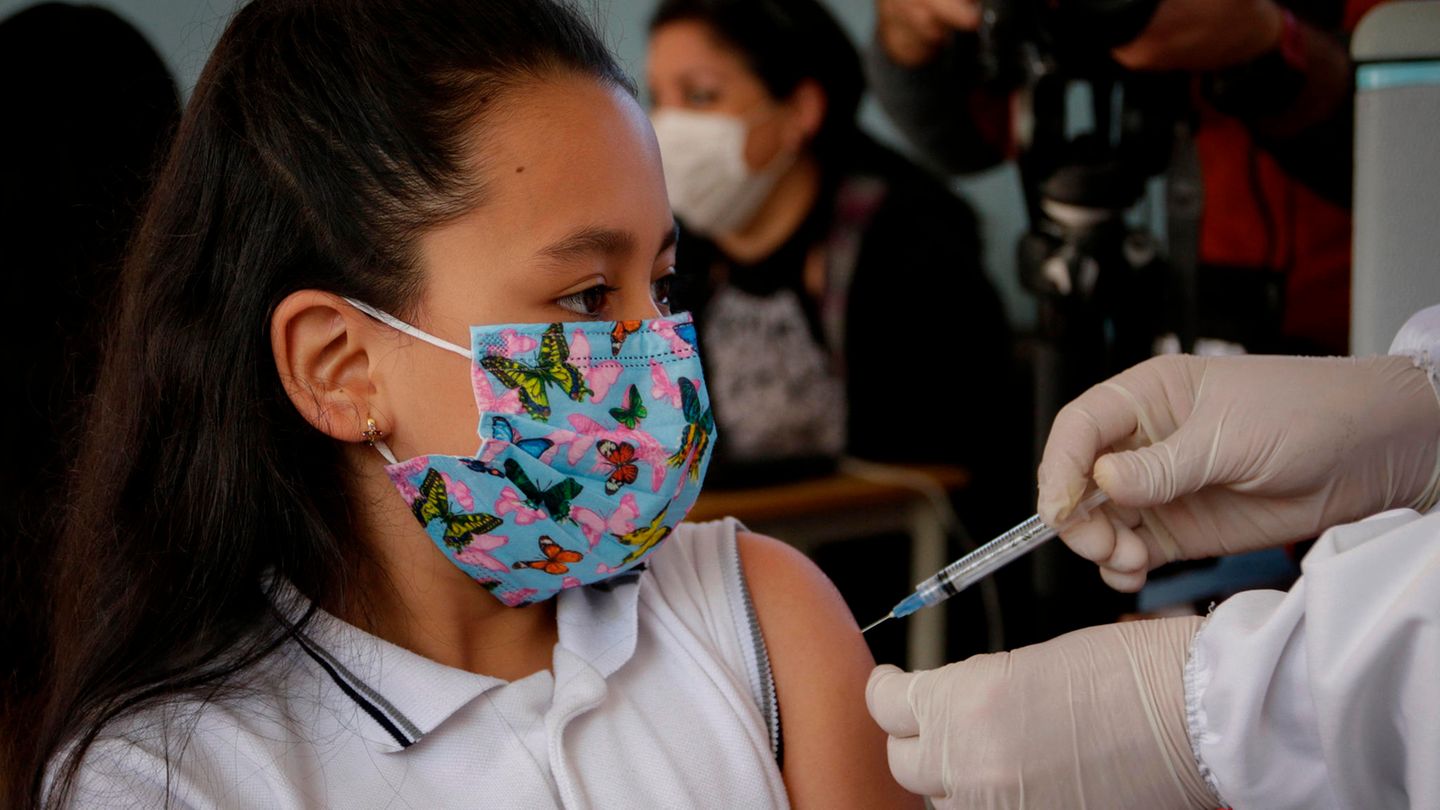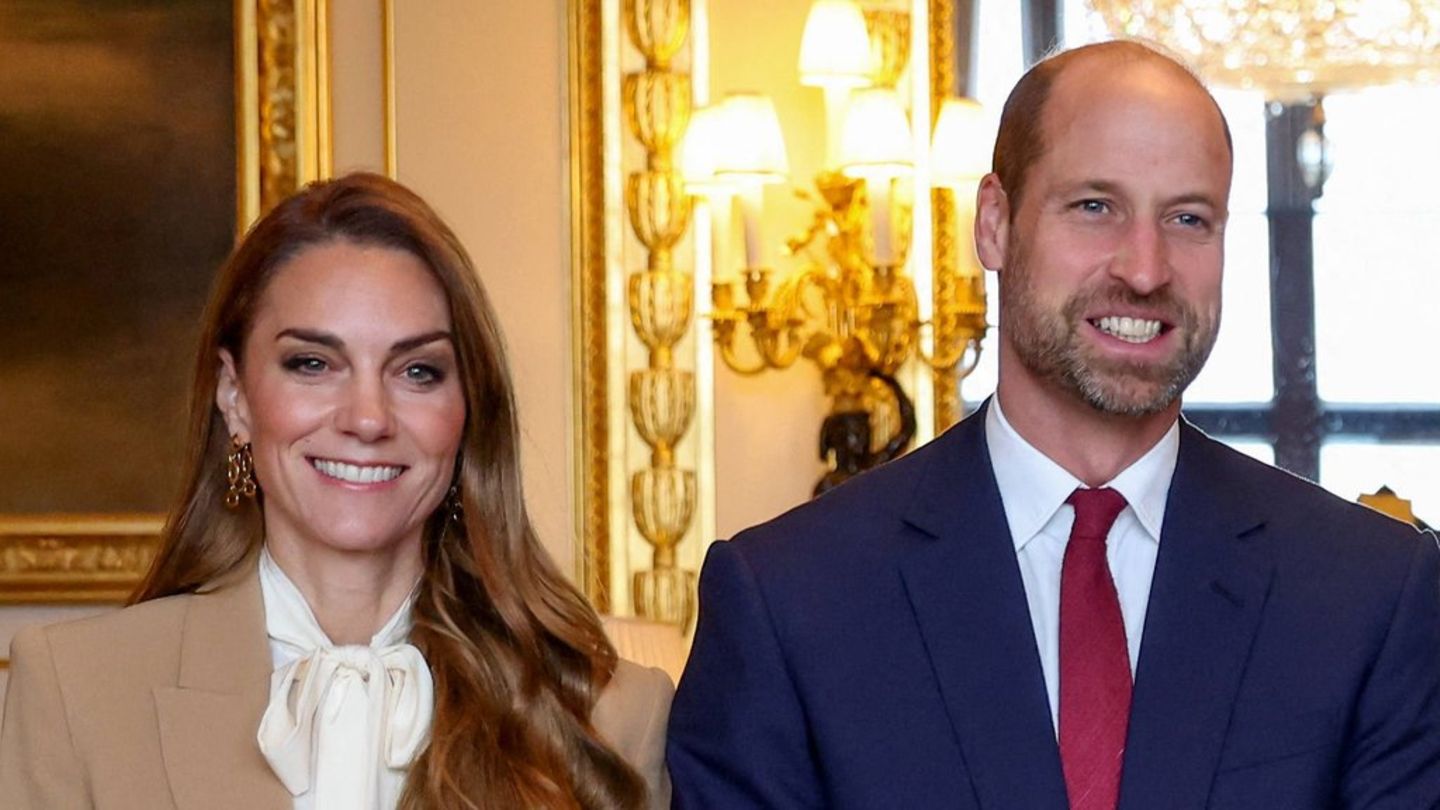In the United States, more than two million children between the ages of five and eleven have been vaccinated against Corona. It could also start soon in Europe. The Ema will soon decide on Biontech for children.
Many parents are waiting in the worsening corona situation: The decision of the European Medicines Agency Ema on the approval of the Biontech / Pfizer vaccine for children from five to eleven years, which is due in a few days. No vaccine is currently available for this age group. Questions and answers:
How is the study situation?
An evaluation published in the “New England Journal of Medicine” assesses the study by Biontech / Pfizer. In phase one, the dose was initially determined: for adults it is 30 micrograms, for children under 12 years of age, after completing the test series, it was decided to use 10 micrograms. Study phases two and three included 2,268 children between the ages of eleven and five. Two thirds of them received two doses of the vaccine each, and one third a placebo. The immune response was measured one month after the second dose.
The authors saw “a favorable safety profile” and “no serious vaccine-related side effects were observed”. Only “mild and temporary reactions” such as fever, pain at the puncture, fatigue or headache were observed. The vaccination is safe and effective, is the conclusion. Three of the vaccinated children fell ill with Covid-19 during the observation period, in the control group there were 16. The researchers put the effectiveness of the vaccine at 90.7 percent. In the opinion of the authors, the only three more severe damage in the observation period had no connection with the vaccination – in one case it was a broken arm. Heart muscle inflammation, as it occasionally occurred after a broad vaccination of over twelve-year-olds, was not found in this – quite small – test group.
Are the available data sufficient to assess the vaccination?
“Approval is something completely different from a vaccination recommendation,” emphasizes Fred Zepp, member of the Standing Vaccination Commission (Stiko). The data were probably sufficient to approve the vaccine for children under 12 years of age: First of all, it had to be demonstrated that the vaccine triggered a protective antibody response and that it did not have any acute undesirable side effects in the test subjects.
“What you don’t see in the registration study are risks that occur less frequently than would be statistically expected in such a small group.” In the pivotal study, only around 1,500 children received the vaccine. “You can’t see any very rare side effects,” says Zepp. Heart muscle inflammation, for example, was only discovered in young men after the vaccine had been used widely.
The Stiko is also about getting data on rare vaccination complications from other countries. In the USA, for example, smaller children have been vaccinated with the lower-dose vaccine since November; according to government figures, around 2.6 million five- to eleven-year-olds have received the first injection so far. However, the situation there and the state of health of the US children are not considered to be 1: 1 comparable with Germany.
How do pediatricians deal with it?
“We advocate to wait and see what the Stiko says,” said the spokesman for the professional association of paediatricians, Jakob Maske. “It would not be advisable for politicians to recommend vaccination unless there is a recommendation from the body that advises the politicians.” Of course, the number of infections increased and with it the pressure to take all possible countermeasures. “But politics shouldn’t put unnecessary pressure on parents and children again.” Mask does not expect a Stiko decision until next year. A recommendation could come sooner for children with previous illnesses and critically ill relatives.
“We want a safe vaccination and that is what the parents want too,” said Maske. The pediatrician from Berlin emphasizes that children become infected because they become seriously ill, but this is the absolute exception. The risk-benefit balance must therefore be different for children than for adults: “Because the risk is very small, the benefit must be very great.” Therefore, much stricter criteria would have to apply for possible side effects. “If the disease burden is very low, the vaccination has to be much safer.”
When will the Stiko decide?
According to Stiko member Zepp, the committee will discuss this “promptly in the next few weeks”. A decision could be made in November, depending on the date of approval, said the Mainz pediatrician. He personally thinks it is possible that a recommendation could initially be made for children with an increased risk due to previous illnesses, as was initially the case with vaccinations for 12 to 17 year olds.
Are pediatricians still allowed to vaccinate children under the age of 12?
Yes, explains Jakob Maske: “This is a free medical decision.” Even before the vaccine is approved for this age group, it is not illegal to vaccinate younger children – the technical term for this is off-label use. Mask considers the number of paediatricians who have vaccinated under 12-year-olds to be small. When EMA approval is in place, more paediatricians will agree to offer the vaccination, Mask believes. That could lead to discussions in the practices. “But that’s what we’re here for,” says Maske.
What do pediatricians think of Covid vaccinations for children in general?
Vaccinating children against an infectious disease that they usually get through easily and without complications is always “a difficult decision,” says pediatrician and Stiko member Zepp. “You have to compare the risks of a Sars-CoV-2 infection with the possible rare risks of a vaccination.” It must also be taken into account that different group sizes are compared: “If I vaccinate all children of one age group, I initially expose all of them to the very low risk of vaccine side effects. The risks of Covid-19 disease are greater, but we do not know how many children are actually got infected and got sick. “
What are the advantages of vaccinating younger children?
Authors of the study in the “New England Journal of Medicine” argue with a direct and an indirect benefit: A vaccination protects children from a – albeit rare – severe course or long-term effects of Covid disease. By protecting them, you are also protecting people around them who are at risk for a more severe course of the disease. Unvaccinated, this age group could also be a carrier for newly emerging variants of the virus.
According to Zepp, there are various parameters in the debate. One is the burden of disease on the individual child, the other is the benefit for society as a whole. In a pandemic, it may also be useful to vaccinate children in order to enable the community to participate more and lead a better life. In contrast, vaccinating children has little effect on the transmission of the virus between adults.
One should not forget: “A large part of our problem are unvaccinated adults. We have to be careful that we do not have another substitute discussion to the detriment of children,” says Zepp. The most important measure to overcome the pandemic remains unchanged, to protect as many adults as possible, ideally all adults, through vaccination. “
Source From: Stern




